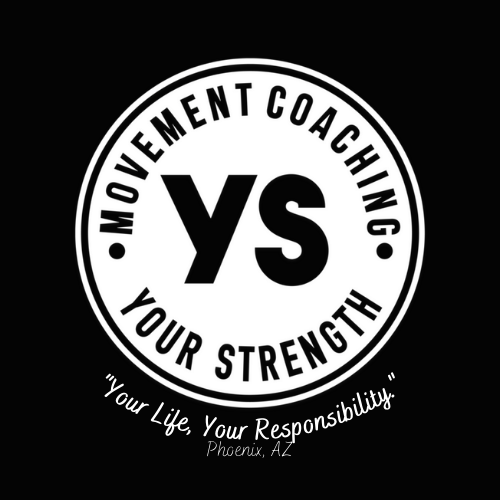9 Tips for Better Sleep
9 Tips for Better Sleep
Hi, I’m Katie… owner of Your Strength Movement Coaching. Nestled in the heart of Phoenix, AZ, we're a cozy, privately owned sanctuary dedicated to personal training and movement coaching, prioritizing your unique journey to wellness.
Whether you're starting from scratch, recovering from injury or surgery, navigating the phases of menopause, embracing your golden years, or simply seeking a fresh perspective on fitness, we're here for you.
At Your Strength, we offer a range of tailored services to suit your needs. From private personal training sessions to intimate small group classes, as well as informative nutrition coaching and beyond, we're committed to supporting you every step of the way.
1. Establish a regular bedtime and waking time
A consistent sleep schedule can help you get enough sleep, which can improve the quality of your sleep. Getting enough sleep can help you feel better by reducing stress, improving immune system function and cognitive function.
2. Keep naps and daytime sleep to 30-45 minutes
The longer you nap, the more likely you are to feel groggy afterward. Take naps in the early afternoon. Napping after 3 p.m. can make it harder for you to sleep soundly at night. After you nap, give yourself time to wake up before you get back to your activities. This is key if you need to do a task that requires a quick or sharp response.
3. Avoid excessive alcohol consumption 4 hours before bedtime, and do not smoke.
Alcohol plays a significant role in quality of sleep, especially if consumed right before bed. Alcohol can make it hard to fall or stay asleep. It can worsen sleep disorders such as sleep apnea because it's a muscle relaxer. Alcohol reduces the amount of time you spend in REM sleep, which is the deepest and most restorative sleep, in addition to causing you to wake more frequently. Dehydration is another negative effect of alcohol before bedtime. It may cause headaches or increase the likelihood of waking to urinate since it’s a diuretic.
4. Eliminate caffeine 6 hours before bedtime. This includes coffee, tea and many sodas, as well as chocolate
Caffeine can cause you to wake up more often during the night and increases the amount of light sleep vs. deep (REM) sleep. It blocks adenosine receptors in the brain, which are responsible for promoting sleep. Caffeine has a half life of 4.5 hours, meaning half of the amount consumed is still in your system after that time. As a general rule of thumb, drink your coffee before noon and keep afternoon snacks and pick-me-ups caffeine-free. Try a big glass of water instead!
5. Avoid heavy, spicy, or sugary foods 4 hours before bedtime
Eating a large meal before bed can cause GI discomfort or a full stomach, making it harder to fall asleep and reducing sleep quality. Consuming sugar before bed can increase restlessness and reduce sleep quality and sleep duration. Instead here are a few foods that may help improve sleep: peanut butter on whole grain bread, lean cheese on whole grain crackers, almonds, cherries, yogurt, bananas.
6. Exercise regularly, but not right before bed.
Exercise is GREAT, just not right before bed. It increases your body temperature, which can delay the natural drop that happens in the evening to help you fall asleep. It also increases your heart rate and stress hormones like cortisol, as well as stimulating your nervous system, making it harder to fall asleep. Try to work out at least 1-2 hours before hitting the hay.
7.) Say no to blue light- this is includes phones, tablets, & TV’s
Exposure to blue light, especially from electronic devices like phones and computers, can disrupt your natural sleep cycle by suppressing the production of melatonin, a hormone that signals to your body that it's time to sleep, essentially tricking your brain into thinking it's daytime even when it's night. This interference with melatonin production disrupts your body's natural circadian rhythm, which regulates sleep-wake cycles. Exposure to blue light can stimulate the brain, making it harder to relax and fall asleep. Try using the “night mode” setting on devices closer to bed time to reduce the amount of blue light.
8.) Design a comfortable space
Temperature, bedding, noise, and light can all effect your sleep quality. Studies have shown the optimal temperature for sleeping is 60-67 degrees. Choose comfortable bedding and pillows to relieve pressure points. Black out curtains and white noise are great options to help increase quality of sleep, this could be especially important depending on where you live.
9.) Reserve your bed for what it’s meant for
Keep the bed for sleep and sex, nothing else. Using your bed for other activities can make it harder to fall asleep, especially when those are brain-stimulating activities such as working on a computer in bed.










